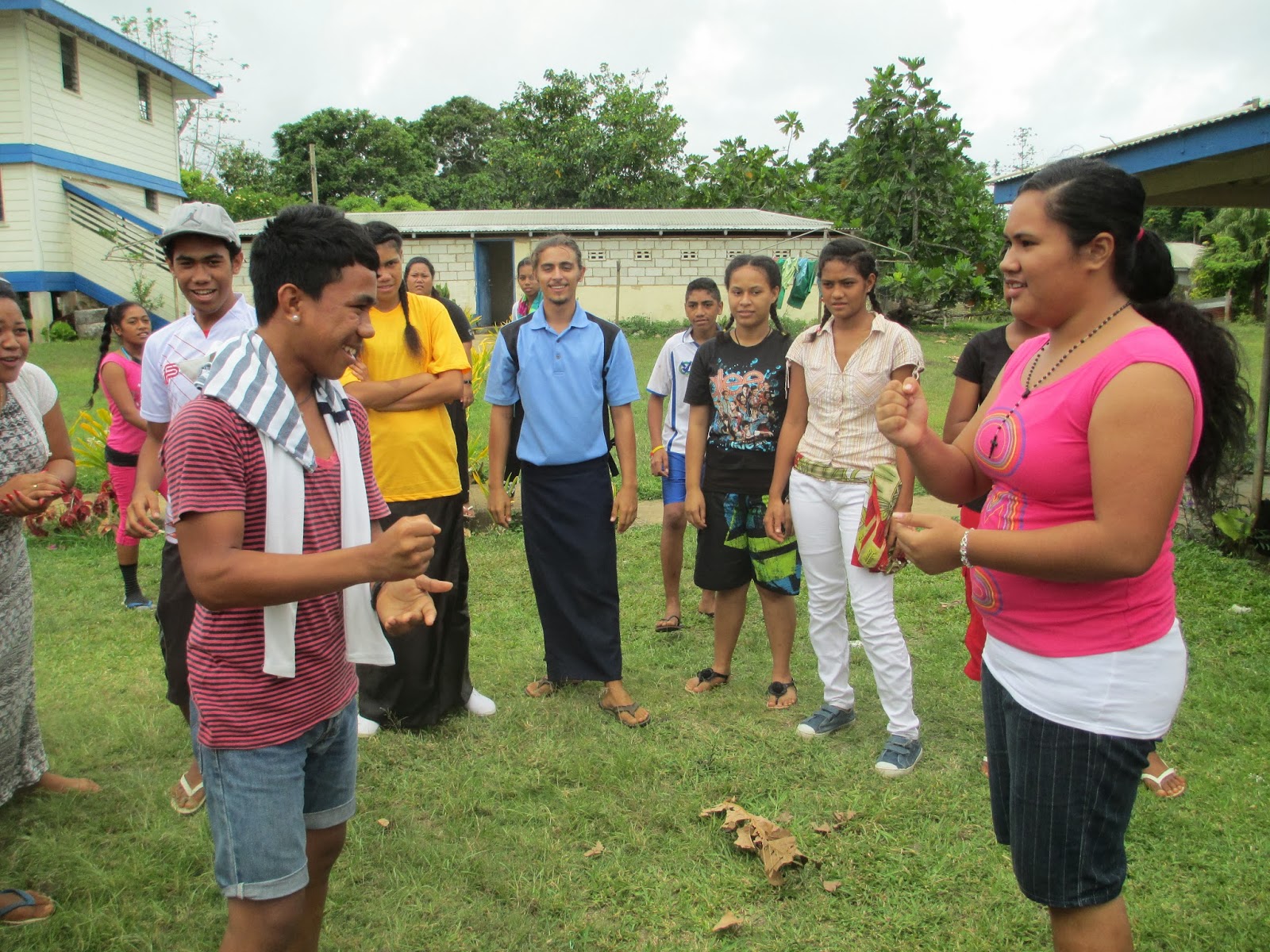Remember the scene in the
Wizard of Oz when Dorothy throws a bucket of water on the Wicked Witch of the
West and she begins screaming, “I’m melting! I’m melting!” until she does
literally melt? Well, that is how I often feel living in Tonga this time of
year. It is always warm here, but the summer months of January, February, and
March are especially scorching.
Without such luxuries as air
conditioning – though I certainly think of AC now as more of a necessity – you
don’t have move to even work up a sweat. The moment I get home from school, the
first thing I do is always to remove my sweat dampened shirt and skirt from my
body to make myself just a little bit cooler. While it is illegal for men to be
shirtless in Tonga, it is acceptable to not wear a shirt in your home and I
take full advantage of this legal loophole.
I won’t sugarcoat it. It is
pretty disgusting. The temperature is usually in the high 80’s to low 90’s with
the muggiest humidity you can imagine. To escape the heat, many Tongans sleep
during the hottest parts of the day and at night sleep outside to take
advantage of the breeze. Unfortunately for me, I am a particularly poor napper
and to sleep outside where I live in the bush is to invite all of the
mosquitoes to a buffet of American flesh.
So…what do I do then? For most
of the week I suffer, drink buckets of water, run incredibly slowly as late as
I possibly can before dark in an attempt to get in some kind of a workout, and
sleep with an electronic fan mere inches away from my face. My more impressive
strategy, however, and perhaps the more interesting one to read about, is
having something to do on the weekends. As I have mentioned in previous posts,
in Vava’u life shuts down from 12 p.m. Saturday to Monday morning because of
church and Sunday being the day of the rest. In this heat, it is easy to go a
little stir crazy just sitting around over these two days, so myself and the
other volunteers have tried to be a little more adventurous the past few weeks,
organizing events under the guise of a slew of volunteer birthdays.
One of the events, a few weeks
ago, was a beach bbq and a campout on one of the most beautiful spots in Tonga,
Secret Beach. Secret Beach, while not exactly living up to its name, is
relatively off the beaten path as it is difficult for tourists to find and
involves a steep hike to get too, dissuading Tongans from other villages from visiting.
Thus a large group of Peace Corps and Australian volunteers, along with some
Tongan friends, spent a day and a night escaping the tropical heat by swimming
in the water and enjoying the cool ocean breeze.
We barbecued chicken over an
open flame, using the leaves around us as plates and dipping sauce, i.e
ketchup, receptacles. We had far too few tents and way too many people, meaning
some people including myself for a bit, slept outside under the stars. Falling
asleep under a blanket of starlight with the rhythmic crashing of the waves
keeping us company, the weather merely warm, and the mosquitoes somewhat less
unruly, we could escape the heat for 24 hours. At time like these, I wonder how
I could ever complain, even about the heat.
As always, thank you for
reading and enjoy the photos.
Camping at Secret Beach
Another volunteer, Ryan, and I
We had shirts made for our group, Tonga Group 77
The back of the shirt is a turtle designed in the Tongan style by one of the volunteers. The words read, "Kau ngaue 'ofa," which is the Peace Corps Tonga slogan and literally translates to the work of love, but also is the word for volunteer.














